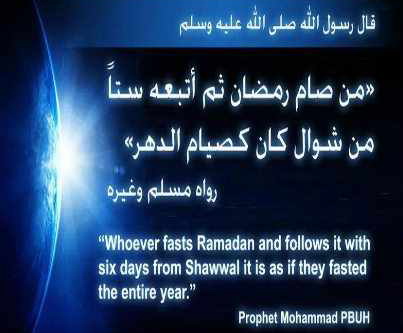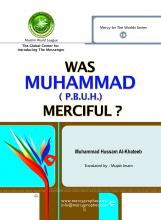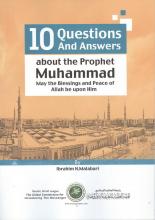The Prophet of Mercy Website
Muslim World League - Global Commission for Introducing the Messenger
Sealed Nectar
Late in the six year A.H., on his return from Hudaibiyah, the Prophet (Peace be upon him) decided to send messages to the kings beyond Arabia calling them to Islam. In order to authenticate the credentials of his envoys, a silver seal was made in which were graven the words: “Muhammad the Messenger of Allâh” in the following formation:
ãÍãÏ
ÑÓÜÜæá
Çááå
Envoys were chosen on the basis of their experience and knowledge, and sent on their errands in Muharram in the year 7 A.H., a few days before heading for Khaibar.
Negus, king of Abyssinia (Ethiopia), his name was Ashama bin Al-Abjar, received the Prophet’s message, despatched by Amr bin Omaiyah Ad-Damari, which At-Tabari referred to, either late in the sixth year or early in the seventh year A.H. Deep scrutiny into the letter shows that it was not the one sent after Al-Hudaibiyah event. Wording of the letter rather indicates that it was sent to that king when Ja‘far and his companions emigrated to Abyssinia (Ethiopia) during the Makkan period. One of its sentences read “I have despatched my cousin, Ja‘far with a group of Muslims, to you.
The Prophet (Peace be upon him) wrote to Juraij bin Matta, called Muqawqas, vicegerent of Egypt and Alexandria saying:
“In the Name of Allâh,
the Most Beneficent, the Most Merciful.
From Muhammad slave of Allâh and His Messenger to Muqawqas, vicegerent of Egypt.
“In the Name of Allâh,
the Most Beneficent, the Most Merciful.
From Muhammad, the Messenger of Allâh to Chosroes, king of Persia.
Al-Bukhari gave a long narration of the contents of the letter sent by the Prophet (Peace be upon him) to Hercules, king of the Byzantines:
“In the Name of Allâh,
the Most Beneficent, the Most Merciful.
From Muhammad, the slave of Allâh and His Messenger to Hercules, king of the Byzantines.
The Prophet (Peace be upon him) despatched ‘Al-‘Ala’ bin Al-Hadrami to the governor of Bahrain, carrying a letter inviting him to embrace Islam. In reply, Al-Mundhir bin Sawa wrote the following letter:
“In the Name of Allâh,
the Most Beneficent, the Most Merciful.
From Muhammad, Messenger of Allâh to Haudha bin ‘Ali:
Peace be upon him who follows true guidance. Be informed that my religion shall prevail everywhere. You should accept Islam, and whatever under your command shall remain yours.”
The envoy chosen was Sulait bin ‘Amr Al-‘Amiri, who after communicating his message, carried back the following reply to the Prophet (Peace be upon him):
“In the Name of Allâh,
the Most Beneficent, the Most Merciful.
From Muhammad, Messenger of Allâh to Al-Harith bin Abi Shamir.
Peace be upon him who follows true guidance, believes in it and regards it as true. I invite you to believe in Allâh Alone with no associate, thenceafter your kingdom will remain yours.”
“In the Name of Allâh,
the Most Beneficent, the Most Merciful.
From Muhammad bin ‘Abdullah to Jaifer and ‘Abd Al-Jalandi.
It was in fact not a battle but rather a skirmish carried out against a platoon of Bani Fazarah. The place by which it was fought is known as Dhu Qarad, a reservoir of water at a day’s journey from Madinah. According to the majority of scholars, this incident took place three days before the battle of Khaibar.






